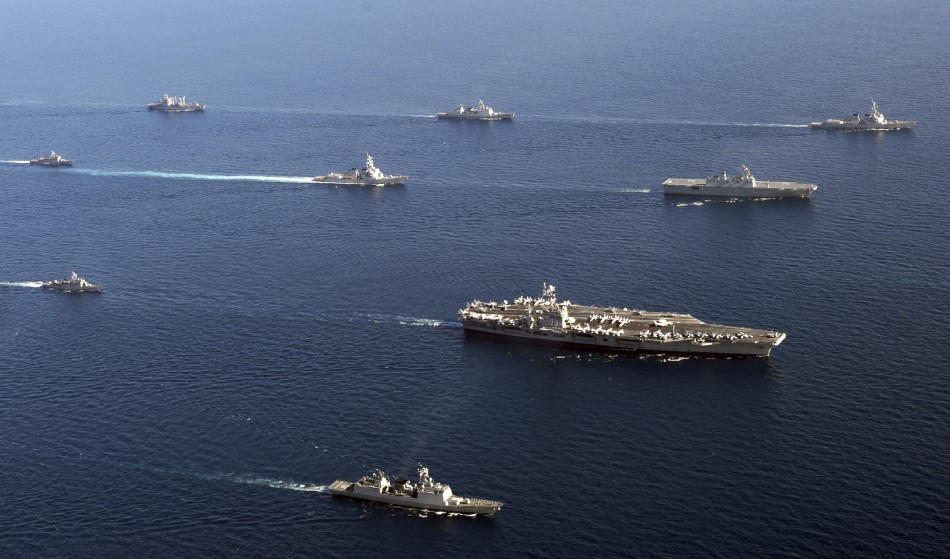
From Christopher P. Cavas, Defense News: Something that looks very much like a new Cold War is forming up here in the Arabian Gulf region.
The hot ground war of Iraq is over, and its counterpart in Afghanistan is drawing down, perhaps even faster than planned. In their place, a new standoff centered on the maritime environment already is at work, signifying intentions by the U.S. and its allies to remain active participants in the region.
“The U.S. and Iran do not have the healthiest relationship,” Vice Adm. John Miller, commander of U.S. Naval Forces Central Command (NAVCENT), told an audience at the NavDex naval exposition in Abu Dhabi on Feb. 21. “We keep an eye on them, they keep an eye on us.”
Vice Adm. Philip Jones, the British Royal Navy’s fleet commander, echoed the need to keep a naval presence in the region. About 20 percent of the world’s oil trade is exported every day from here, most of it by sea.
“There are many shared maritime interests,” Jones told the Abu Dhabi audience Feb. 19. “Peace at sea is not going to keep itself. . . .”
The Northern Arabian Gulf is not as busy with coalition warships as it was during Operation Iraqi Freedom. But the U.S. and British field about 27 ships permanently assigned to the region — 19 U.S. and eight British. From their base in Bahrain, they regularly cruise the Southern Arabian Gulf and provide escorts for ships transiting the Strait of Hormuz — its “Knuckle” around the peninsula of Oman and the United Arab Emirates — and out into the Gulf of Oman and the Arabian Sea.
All told, NAVCENT says, more than 40 U.S. Navy ships are operating on any given day in its area. Add international ships from the command’s associated Combined Maritime Force, and more than 70 U.S. and coalition ships are operating here. . . .
“The U.S. and the Brits and the French have made it clear they have a long-term interest in remaining in the region,” Eric Thompson, director of strategic studies at the Center for Naval Analyses in Washington, said March 20. “They are declared stakeholders about what Iran is doing. Lots of other countries express their interest in the region — including China and India — but not in the same fashion regarding maintaining regional stability.” (photo: Reuters)
Image: reuters%203%2025%2013%20UK%20navy%20Persian%20Gulf.jpg
